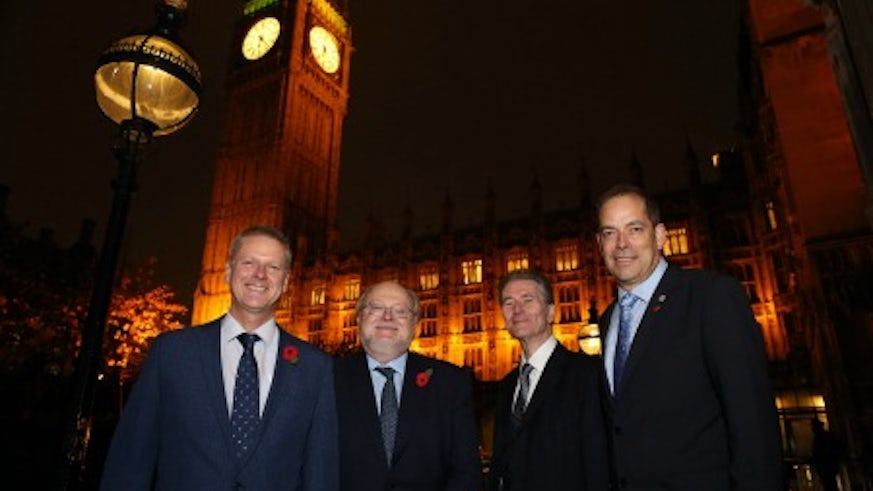Universities’ Collaboration Celebrated
30 Hydref 2014

The GW4 Alliance, which brings together the combined strengths of the universities of Bath, Bristol, Cardiff and Exeter, held its official launch last night.
In a successful event at the House of Commons hosted by Baroness Randerson, Secretary of State for Wales, Stephen Crabb MP, came together with representatives from industry, business, academia, charitable organisations and the public sector, to celebrate the Alliance's achievements over the past 18 months.
Launching GW4, Iain Gray, Chief Executive of Innovate UK, said: "Innovate UK is very pleased to support the formal launch of GW4. We have worked very closely with all four universities. By working together to build communities and share facilities, I believe there are even more opportunities to promote economic growth in the South West and Wales."
Professor Colin Riordan, Vice-Chancellor of Cardiff University and Chair of GW4's Council, added,
"GW4 is powering innovation and driving growth in the South West and Wales, giving us the critical mass and the quality to succeed in an increasingly competitive and research-intensive environment.
It is making the best better in a way that provides a return on investment, stimulates economic growth in the region and produce the research leaders of the future."
The collaborative strength of GW4 has already succeeded in attracting significant funding to train postgraduate researchers and bring the brightest minds to the region. It hosts the largest Natural Environmental Research Council (NERC) Doctoral Training Programme (DTP) in the UK, providing 200 studentships to develop the next generation of environmental scientists.
In the past year it has funded over £650,000 to 35 projects harnessing expertise across the four institutions to tackle some of society's grand challenges such as climate change and dementia.
Professor Guy Orpen, Deputy Vice-Chancellor of the University of Bristol and Chair of the GW4 Board, concluded, "The GW4 Alliance brings added value to the four universities. It allows us to promote interdisciplinary research across a wide pool of academics, reaching far beyond what any one university could do."